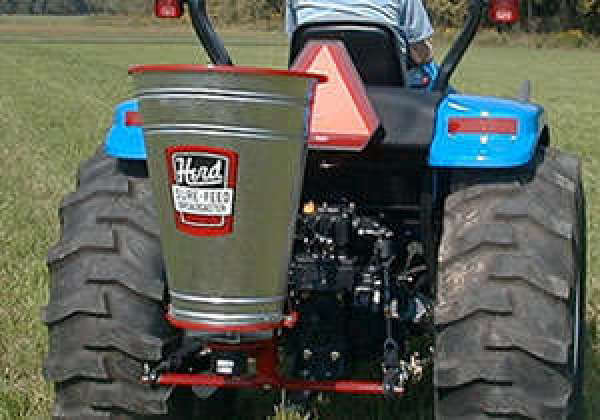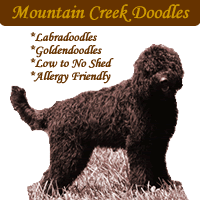|
|
|
 Antifreeze Types
Antifreeze Types
I have a Toyota Tundra and I noticed that the coolant color is sort of pink in color whereas all the other collant I have seen other than RV coolant is "green" in color.
Is there a difference? If so where do I get the "pink" coolant? What are the brands? Labels?
|
|
 Add Photo Add Photo
Bookmarks: |
|
|
|
|
 Antifreeze Types
Antifreeze Types
My parents Olds van came with the pink antifreeze and I think it is the extended life stuff that doesn't have to be changed for a 100,000 miles. I thought that most stores carried it. I think it is more expensive as well.
|
|
 Add Photo Add Photo
Bookmarks: |
|
|
|
|
 Antifreeze Types
Antifreeze Types
I think that it is the long life stuff. Auto Supply places that I have checked have had it. Look on the label to make sure that the new brand is compatible with your brand of automobile and the coolant that it comes with. It is somewhat more expensive, but not outrageous for something that lasts 100K if you don't lose it.
|
|
 Add Photo Add Photo
Bookmarks: |
|
|
|
|
 Antifreeze Types
Antifreeze Types
I just need to add some to the overflow tank, so I did not want to mix two different types.
I have looked at wally world but did not check a parts store. I need so little that maybe I can get one of the premix 50 50 bottles.
|
|
 Add Photo Add Photo
Bookmarks: |
|
|
|
|
 Antifreeze Types
Antifreeze Types
Dennis;
It is no different to the green material. Antifreeze has a limited life as the alcohols will dissolve metals and other contaminates out of the system. The antioxidants, rust inhibitors, lubricants etc break down over time and need to be replaced. The flourescent dyes are added to trace for small leaks.
I have bought some of the cheaper generic antifreeze with the pink dye.
Dennis if you have not replaced the antifreeze it is about time anyway. I am looking at the Dodge the same way.
You need the mixed metals antifreeze and ideally distilled H2O.
|
|
 Add Photo Add Photo
Bookmarks: |
|
|
|
|
 Antifreeze Types
Antifreeze Types
Dennis GM uses a pinkish extended life anti freeze. I believe Texaco makes it or is very similiar.
Catapillar also uses the extended life but it is a more of a grape color. Catapillars premix extended is about $6 per gallon the way we buy it.
BTW you must have somekinda Toyota to do all that stuff 
(under equipment and uses  )))))))))) ))))))))))
|
|
 Add Photo Add Photo
Bookmarks: |
|
|
|
|
 Antifreeze Types
Antifreeze Types
The additives in the newer antifreeze are different. It is still basically ethylene glycol, but I don't mix it with the older stuff with the different additive concentrations. It is not that much more expensive and it is not worth saving a couple of bucks on this.
As to using distilled water...I would not recommend it. It is important to use clean water and water that does not contain extremely high concentrations of calcium and magnesium (hard water minerals) because those minerals tend to separate out and form a mineral layer when the water is heated.
Distilled, RO, and deionized water all are more pure forms of water. As you remove the solids that are disolved in the water, it effectively becomes more corrosive. The best way that I can describe it is that the water attempts to achieve a balance with its environment. If the environment is in limestone caverns, then the water will disolve limestone and become "hard." If you put a pure form of water in an engine block (especially with dissimilar metals) then you will set up a corrosive cell that will disolve some of the metal until an equilibrium situation is reached. (Someone will probably say that pure water is a non-conductor and is non-corrosive, but that is a temporary condition that will reverse itself when pure water is in contact with non-passivated metals.)
I mentioned on another thread that I used to make solutions for contact lenses and eye care. The heart of that process is the making of extremely pure water, so I speak from experience when I talk about the corrosive properties. Use good clean soft water in your engines and you will be happy and they will last for a long time. If your manufacturer says to use distilled water, then you should do that because they have made provisions to accept it.
|
|
 Add Photo Add Photo
Bookmarks: |
|
|
|
|
 Antifreeze Types
Antifreeze Types
The amount of minerals disolved in the water is insignificant in this application. It is important not to drink distill water, as it will leach minerals from your system. But in this application the you are adding the corrosion inhibitors etc. It is important that you remove the other calcates as they block you tubes over time.
If you think pure water is corrosive then you had better not add the ethylene glycol.
Prestone sell their better grade in the pink guise. The only difference I could see was a surfactant and a corrosion inhibitor listed. It is recommended for the aluminum rads.
I have been using the propylene glycol, Peak sell it at K-mark for only slightly more than standard prestone. It is also recommended for the rads. The propylene is less corrosive then the ethylene also.
|
|
 Add Photo Add Photo
Bookmarks: |
|
|
|
|
 Antifreeze Types
Antifreeze Types
Propylene glycol works fine. It has the added advantage of being less toxic than ethylene glycol for dogs and other animals.
I think that we agree on getting much of the calcium and magnesium out of the cooling system and soft water accomplishes that. Water from surface sources should be good enough. With processed soft water the TDS are esentially the same, but the Ca and Mg are replaced by sodium or potassium and remain disolved in the cooling system.
Do you know if there are any pH buffer agents in the additives for the new EthGly antifreeze? It would make sense for the mfrs to use them.
|
|
 Add Photo Add Photo
Bookmarks: |
|
|
|
|
 Antifreeze Types
Antifreeze Types
I agree de-ionized or soften water is fine. I have neither from the tap here so resort to buying distilled.
The corrosion additives act some what like a buffer but they are added at lower concentration than are on the label so?
|
|
 Add Photo Add Photo
Bookmarks: |
|
|
|



 Gas Generator Weather Protecti
Gas Generator Weather Protecti Horse Injured Polyrope Electri
Horse Injured Polyrope Electri Do electric fences keep out de
Do electric fences keep out de Any Peruvian Paso Owners Out T
Any Peruvian Paso Owners Out T gas powered post driver
gas powered post driver My new born foal is really sic
My new born foal is really sic Trailer Axle
Trailer Axle dump trailer blueprints
dump trailer blueprints Gas Generator Weather Protecti
Gas Generator Weather Protecti Went to see Dennis Reis this w
Went to see Dennis Reis this w Signs to look for prior to lab
Signs to look for prior to lab leg injury
leg injury Broodmare has welts all over h
Broodmare has welts all over h Some Christmas Humor For Horse
Some Christmas Humor For Horse poles in the ground vs. concre
poles in the ground vs. concre ever thought about moving?
ever thought about moving? new app owner
new app owner Some Christmas Humor For Horse
Some Christmas Humor For Horse Any Peruvian Paso Owners Out T
Any Peruvian Paso Owners Out T Heating a Garage
Heating a Garage Gas Generator Weather Protecti
Gas Generator Weather Protecti Do electric fences keep out de
Do electric fences keep out de gas powered post driver
gas powered post driver Trailer Axle
Trailer Axle

